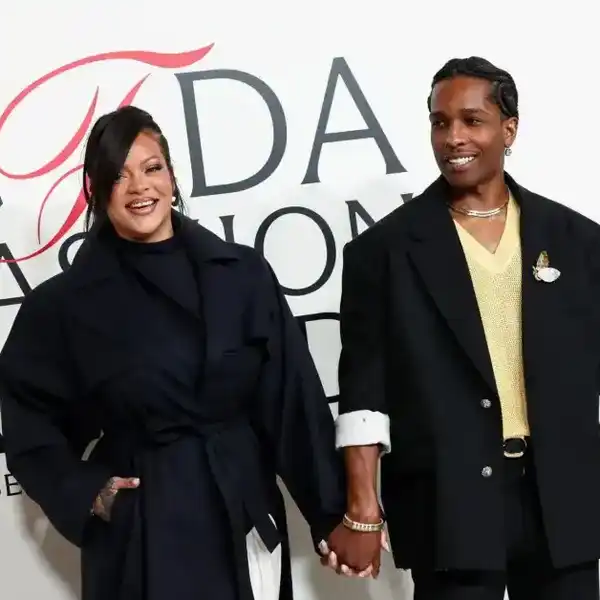
By David Farrell
Dave Charles breaks down what’s in store at CMW’s Radiodays conference
Radio Days North America (RDNA) is of exceptional value for those broadcasters wanting to take radio into the future. Let me show you why this will be the absolute radio and media summit in 2023.
First, let me thank Neill Dixon and Ross Davies for creating the ultimate media showcase where we can work together to take radio and new media into the future!
This is the first truly international conference bringing world-class speakers from around the world to a world-class city – Toronto, Canada. Speakers that have proven success in the United Kingdom, Europe and Australia. And yes, key broadcast experts from Canada and the United States as well.
Radiodays North America (RDNA) is a new joint partnership with the highly popular Radiodays Europe (RDE) conference. RDE is arguably considered the pre-eminent broadcast conference in the world. RDNA will be bringing in the expertise, guidance and support from the management team at RDE.
Radiodays North America is targeted toward the U.S. and Canadian audio marketplace. Its content will focus on all things audio; over-the-air radio, digital audio and podcasting. It will bring insight from around the world where broadcasting is booming, providing delegates with key takeaway learnings to take back to their market.
RDNA ‘23 has attracted business leaders in radio, audio and podcasting.
Aled Heydn Jones, Head of BBC Radio One, talks about the success they have had in capturing the Gen Z generation.
Duncan Campbell, the head of the Australian Radio Network coming to talk about why and how the radio industry in Australia is booming.
Tom Webster and Dan Misener, two of the podcast industry’s leading advocates, talk about the latest trends in North American podcast consumption.
RDNA will feature a special one-on-one conversation with Carolina Bermudez, the morning host of WKTU in New York talking about the importance of talent and the role they play in connecting to the audience.
Catherine Burns, the Artistic Director of the highly successful podcast “The Moth.”
Joe Harland, the Head of Visual Content for the BBC, showcases how they have successfully incorporated video into their audio brands.
James Cridland, Radio Futurologist, recognized around the world for searching out new technology and tools that will make your radio station better.
RDNA will be on the leading edge of technology and innovation.
Daniel Anstandig will bring us up to date on their market testing with RadioGPT, one of the most intriguing technological advances to hit the broadcast industry in recent years. Similarly, RDNA will once again put the spotlight on radio’s role in the automobile bringing delegates up to date on the impact of electronic vehicles and AM/FM radio.
Nominations still open for 14th annual Allan Waters Young Broadcast of the Year award
A reminder that nominations are now open for CMW's 14th Annual Steve Young Broadcaster of the Year award. The countdown is on, and the deadline is Friday, May 12, by midnight EST.
StatsCan’s latest Income survey
The median after-tax income of Canadian families and unattached individuals was $68,400 in 2021— little change from 2020. With the easing of economic shutdowns related to the COVID-19 pandemic, market income increased in 2021, led by a rebound in employment income and a reduced reliance on COVID-19 relief programs. Despite relatively stable after-tax income, Canada's official poverty rate increased by 1.0 percentage points to 7.4% in 2021 but remained well below the pre-pandemic poverty rate (10.3% in 2019).
Google threatens existing deals with news publishers over Bill C-18
If the Liberal government pushes ahead with its online news bill, Google could cut or end existing deals with Canadian news outlets, a Google executive told senators Wednesday evening.
In Canada, Google has deals with news publishers that cover 150 outlets through its Google News Showcase program, including with Postmedia, publishers of the National Post. Google pays news outlets to licence content for the program, though the financial terms of the deals with outlets haven’t been disclosed. – Anja Karadeglija, National Post
CRTC ED Scott Shortliffe to the Senate Standing Committee on Transport & Communications
Ottawa, May 02: Under the scope of the proposed legislation, the CRTC would perform several functions.
Specifically, we would develop, implement and oversee the regulatory framework under which new commercial agreements would be negotiated.
We would also assess which online platforms the Online News Act would apply to and which news businesses are eligible to negotiate under the Act.
We would oversee negotiations and mediation and create a roster of qualified external arbitrators for final offer arbitration.
We would also establish a code of conduct to support fairness and transparency in bargaining, and we would deal with complaints relating to unjust discrimination, undue preference or undue disadvantage as it relates to the Bill.
Finally, we would engage an independent auditor to publish an annual report on the Act’s impact on the Canadian digital news market.
Liberals vow to provide 'greater clarity' as controversial online streaming bill becomes law
The Liberal government has maintained it doesn’t intend for C-11 to capture user content, such as YouTube or TikTok videos Canadians and digital creators post, but rejected a Senate amendment that would have specified in the law that user-generated content is excluded. – Anja Karadeglija, National Post
Bill C-11: A DOJ charter statement
The Minister of Justice has examined Bill C-11, An Act to amend the Broadcasting Act and to make related and consequential amendments to other Acts, for any inconsistency with the Charter pursuant to his obligation under section 4.1 of the Department of Justice Act. This review involved consideration of the objectives and features of the Bill.
What follows is a non-exhaustive discussion of the ways in which Bill C-11 potentially engages the rights and freedoms guaranteed by the Charter. It is presented to assist in informing the public and Parliamentary debate on the Bill.
A new streaming bill is close to becoming law in Canada. Here's how it works
The current Broadcasting Act has language that requires Canadian broadcasters to make "in no case less than predominant use" of Canadians in making and presenting content.
Bill C-11 would keep that language but also require foreign online broadcasters to make the "greatest practicable use" of Canadians and contribute to the production of Canadian programming. – CBC News
Bill C-11 is a victory for the possible
The simplest justification for the new act is economic: Foreign streaming services, which take millions in subscription revenue out of the country, should be required to invest in local production. The more complex reasoning is about the benefits, not merely economic but also social, that accrue to Canadians through the production and consumption of entertainment that has been made at home. For all the delights of Hollywood and global cultures, for all the importance of both escapism and human empathy in the arts, you do not want to be a place that relies exclusively on cultural imports, a place whose citizens are always looking through windows at other people and other lands. Think of it as an arts version of eat local. – Kate Taylor, The Globe and Mail
Now C-11 has passed in Parliament, there’s still a long way to go before it becomes law
Now that Bill C-11 has passed, regulatory work can begin.
The next step will be for the CRTC to get to work on drafting the policy framework for how the broadcasting and communications regulator will implement the new powers Bill C-11 grants, informed by a federal policy directive as well as public consultations.
The draft federal policy direction will be published in the Canada Gazette for the public, artists, digital creators, and businesses to read and provide feedback on. The draft will then be updated and re-published… – Rachel Aiello, CTV News
Notable
Pinewood Group, which runs Pinewood Studios in the U.K., has acquired full ownership of the 49K sq. foot Pinewood Toronto Studios: The deal follows majority owner Bell Media putting up for sale its majority stake in the marquee studio where the Star Trek: Discovery series and Guillermo del Toro shoot. The deal for full ownership of Pinewood Toronto Studios landing with the UK group also comes after long negotiations with the city of Toronto and Paul Bronfman, chairman and CEO of studio operator Comweb Corp. to follow suit and sell their minority stakes in the facility. Notably, the deal was driven by the acquisitions & strategy division of Loft Ent.
Rogers Comm is making headlines, again with its deal with SpaceX to boost remote connectivity, the hiring of former Liberal industry minister Navdeep Bains who headed the telecom file until 2021, and winning exclusive rights to build a long-talked-about TTC wireless network providing cell phone service to the subway system. Then there is the report that the telco is offering a questionable discount plan for its fleet of cell phone services.
Karyn Pugliese is named the editor-in-chief of Canadaland: The media veteran will work with founder and publisher Jesse Brown and starts in July.
Signal Hill has released its latest Canadian podcast listening study: The results are based on an online survey using a market representative sample of 4,600 adults.
Vice Media preparing to file for bankruptcy, New York Times reports – Reuters
‘Another era’: As King Charles III takes the crown, Canada shrugs – Al Jazeera
The fallacy of radio station P1s – Jacobs Media
Samsung is urging its workers to stop using generative AI tools: The tech giant is worried about leaks of sensitive information. – Mark Gurman, Bloomberg News
Scientists develop A.I. system focused on turning peoples’ thoughts into text: The system, called a semantic decoder, could ultimately benefit patients who have lost their ability to physically communicate after suffering from a stroke, paralysis or other degenerative diseases. – Ashley Capoot, CNBC
14 million jobs worldwide will vanish in the next 5 years, new economic report finds – Julia Horowitz, CNN
'Godfather of AI' quits Google -- and says he regrets life's work – NY Post
These occupations will see the most jobs created, and lost, in the next 5 years
What did listeners say when this US station went AI? According to parent company Radio Television Suisse, several hundred messages were sent, ranging from, “It’s amazing what we manage to do with this tool,” to, “Give us back our humans!” Some listeners admitted they had believed it was content as usual until the disclaimer popped up. “I sometimes got tricked, but there is something weird and the jokes are flat,” said one listener. Another said, “It definitely does not replace the human.” – Radio Ink
Tucker Carlson tells some truths
Speaking at the Heritage Foundation's 50th Anniversary Celebration, former Fox News host Tucker Carlson spoke about the changes that have occurred in the past two decades. He’s surprisingly candid. FYI: Heritage is an American conservative think tank that is primarily geared toward public policy.
Satan fired Tucker Carlson, Right-Wing Christians say: The end of an era on Fox News is seen as a victory for the devil. – Tom Dickinson, Rolling Stone
Comedian Roy Wood Jr. skewers Tucker Carlson at the White House correspondents’ dinner
Canadian billionaire Jim Pattison once paid US$4.8M for a bejewelled gown – Fast Company

















